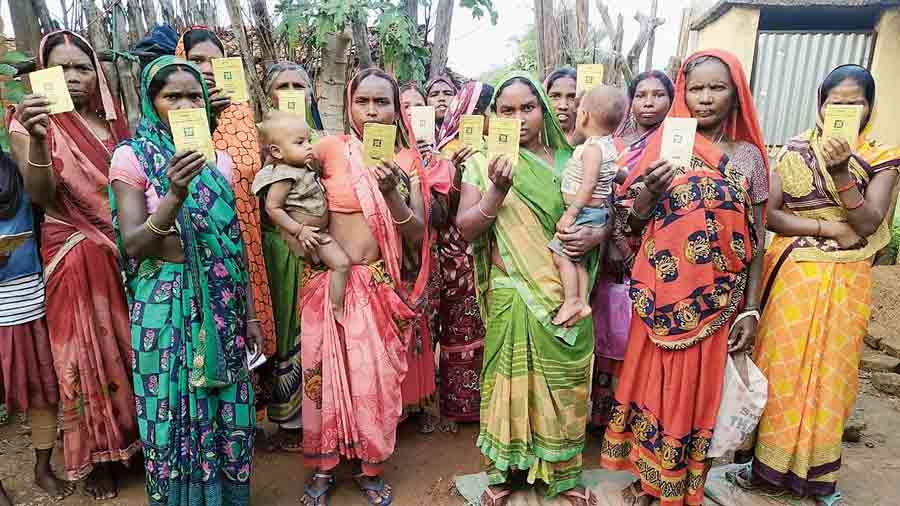The Jharkhand government going high on its doorstep delivery campaign Apki Yojana, Apki Sarkar, Apke Dwar has reasons to ponder on execution of welfare schemes with several families of the particularly vulnerable tribal group (PVTG) denied rations for seven months.
Over 19 PVTG families belonging to the Korwa tribe, one of the eight PVTGs on the verge of extinction in Jharkhand, are not getting food grains under the Antyodaya Anna Yojana despite having valid Antyodaya ration cards since April this year in violation of the National Food Security Act (NFSA).
The Korwa tribe resides in Matra village under Khuri panchayat of the Chiniya block in Garhwa district, around 270km from Jharkhand’s capital Ranchi.
The Antyodaya Anna Yojana is a central government sponsored scheme. The Antyodaya ration card is commonly known as yellow ration card because of the colour of its cover.
Under the Antyodaya Anna Yojana scheme, subsidised food is distributed to the poorest of poor having yellow ration card. In Jharkhand, under the scheme one gets 35kg of rice, 1.5 litre of kerosene oil, 1kg of salt and 1kg of sugar each month.
Significantly, PVTG families are covered under the Dakiya scheme wherein ration is provided at the doorstep.
“We used to get rice, sugar, salt and kerosene oil till March. But all of a sudden I stopped getting it in April,” said Rajni Devi, 26, of Matra village whose husband works as a carpenter.
“When some of our tribal leaders met the block development officer a month ago, they were told that the issue would be sorted out before the festive season. But we are yet to get it and have to borrow food from relatives staying in other panchayats during the Durga Puja,” Rajni said.
Saraswati Devi, 30, another homemaker whose husband has migrated to Tamil Nadu to work as a labourer, also narrated the same experience.
“I used to work in other fields during harvest season to earn a living while my husband works as a migrant labourer in Tamil Nadu. However, this year due to the drought situation in Garhwa I could not earn much working in other fields. We currently exist by eating one time a day that too from food grains purchased from relatives in other panchayats. We do not know when we will be getting our food grains,” Saraswati said.
Manikchand Korwa, a Right to Food activist from Garhwa, who raised this issue was surprised.
“All the remaining blocks are getting rations but surprisingly this has happened in Chiniya only where Korwa families are not getting their ration. Even the families who are getting ration are getting only rice and not kerosene oil, sugar or salt. We would demand the administration to ensure supply of rations and also pay them compensation according to the NFSA for the period they have been denied ration,” Korwa said.
Chiniya block development officer Kalidas Munda accepted rations not being distributed to PVTG families.
“We are not getting the allotment (ration) and as a result cannot distribute it to the families. We have written to higher authorities informing about the situation,” the BDO said.
Garhwa deputy commissioner Ramesh Gholap said the matter has been brought to his notice on Sunday.
“After coming to know about the matter on Sunday I have asked the district supply officer to probe into it and submit a report at the earliest. It is a serious violation of NFSA provisions,” the deputy commissioner said.











